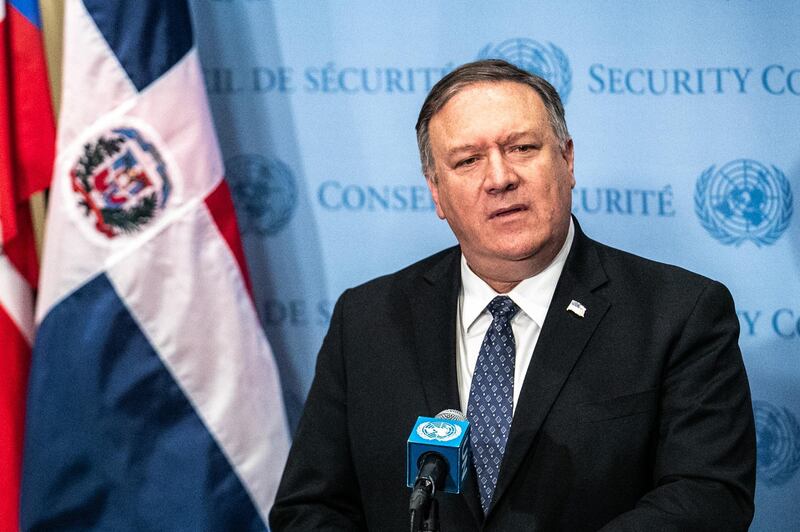Europe has taken its first big step to confront America on the global stage, but the Iran trade mechanism announced last week is already a damp squib. Instrument in Support of Trade Exchanges (Instex) is the special purpose vehicle that European states believe safeguards non-dollar trade with Iran from US sanctions.
Yet, from its birth, the creators, Britain, France and Germany – the three most significant states in western Europe – have played down its significance.
Despite a grand address in central Paris and a board that boasts three of the continent’s highest-ranking diplomats, it arrived as an orphan.
It has all the trappings of an active corporation but its operational guidelines are tightly constrained.
The weakness of the offer tells the world about a self-crippled European role in the most divisive aspects of international politics. Europe craves distance from the US, but fails to grasp its opportunities.
Stemming from the same impulse, most European countries have been hostile to the US-organised summit on the Middle East, to be held in Warsaw next week.
The EU’s high representative for foreign affairs Federica Mogherini will not be present in the Polish capital. Germany and France have threatened to send low-ranking officials. Britain agreed that foreign secretary Jeremy Hunt would attend only after Mike Pompeo added Yemen to the agenda.
Polish officials privately admit that they have taken flak from other states over their decision to host the summit.
Poland was also one of the European countries that lobbied against Instex to prevent its launch as an EU initiative.
In fact, Instex is a scaled down version of the model proposed when US sanctions were imposed on Iran by President Donald Trump after he pulled Washington out of the 2015 nuclear accord last year.
Originally, it was mooted as a trade mechanism to act as an intermediary between Iranian banks and European banks. That could not work because the European banks were not about to risk destroying all links with the US economy and being blackballed from US dollar transactions. Nor was a platform for euro-denominated trade in Iranian oil a runner.
With both those options closed off, the eventual platform is much more modest in two key aspects.
In the first place, the corporation is owned three-ways by France, Germany and the UK. The co-owners hope that other countries will join. It is by no means clear that any other states will seek participation.
The rules now state material transactions of Instex will be limited to humanitarian goods. This is a historic irony. The mechanism reprises an arrangement that the US operated between 2013 and the deal coming in to force. If kept tightly controlled, the new set-up could end up smoothing off some of the sharpest edges of the sanctions.
However, if the shareholders lose focus, the body could take the path of the Iraqi Oil-for-Food programme that corruptly but effectively sustained Saddam Hussein’s rule after 1991.
With such open wrangling and modest achievements, Europe harms its standing on the global stage.
One constituency – Iran’s self-described reformists are not fooled by the manoeuvring.
President Hassan Rouhani all but threw in the towel last week, as he admitted the nation's economy was sinking. The weight of sanctions, inflation and corruption means he cannot possibly meet the aspirations of his supporters.
Hard-line rivals fight desperately to sustain the resources that maintain Iran’s cross-border adventures and military expansion. New pinch points, even for the Islamic Revolutionary Guards Corps, mean that the reported $1bn stipend to Lebanon’s Hezbollah is allegedly under review.
The inescapable backdrop is the powerful impact of the unilateral imposition of sanctions by the US.
While Iran’s oil exports rebounded somewhat in December after the initial shock of the US sanctions, its imports to China and Europe continued to slide. In the Chinese case, this figure fell to a five-year low of just above $400m.
Iran has additionally shot itself in the foot by sanctioning a more aggressive campaign of assassination plots and intelligence activity across Europe.
States, thus, are simultaneously drawing up punitive measures against Iran. Suspects implicated in the Iranian plots face trial in the coming months, which will increase pressure for a more robust approach.
Warsaw is, therefore, the point at which the alarm bells are taken seriously. The organisers promise that working groups established there will subsequently target Iran. Europe can still step up its game.
Europe-based analysts gave Instex a name before its much delayed launch: Godot.
The full title of the play by Samuel Beckett is Waiting for Godot. The presumed message is that Godot never comes and the suffering continues.
The people of Iran know the feeling as they look to Europe for support.





